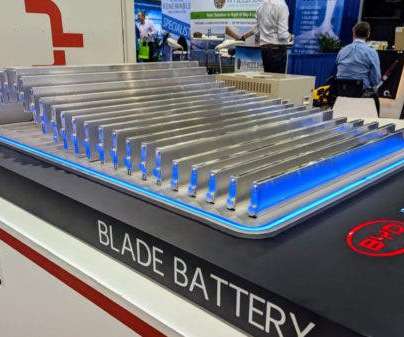Seaweed-Based Battery Powers Confidence in Sustainable Energy Storage
CleanTechnica EVs
OCTOBER 7, 2022
Bristol-led team uses nanomaterials made from seaweed to create a strong battery separator, paving the way for greener and more efficient energy storage. Sodium-metal batteries (SMBs) are one of the most promising high-energy and low-cost energy storage systems for the next-generation of large-scale applications.













Let's personalize your content